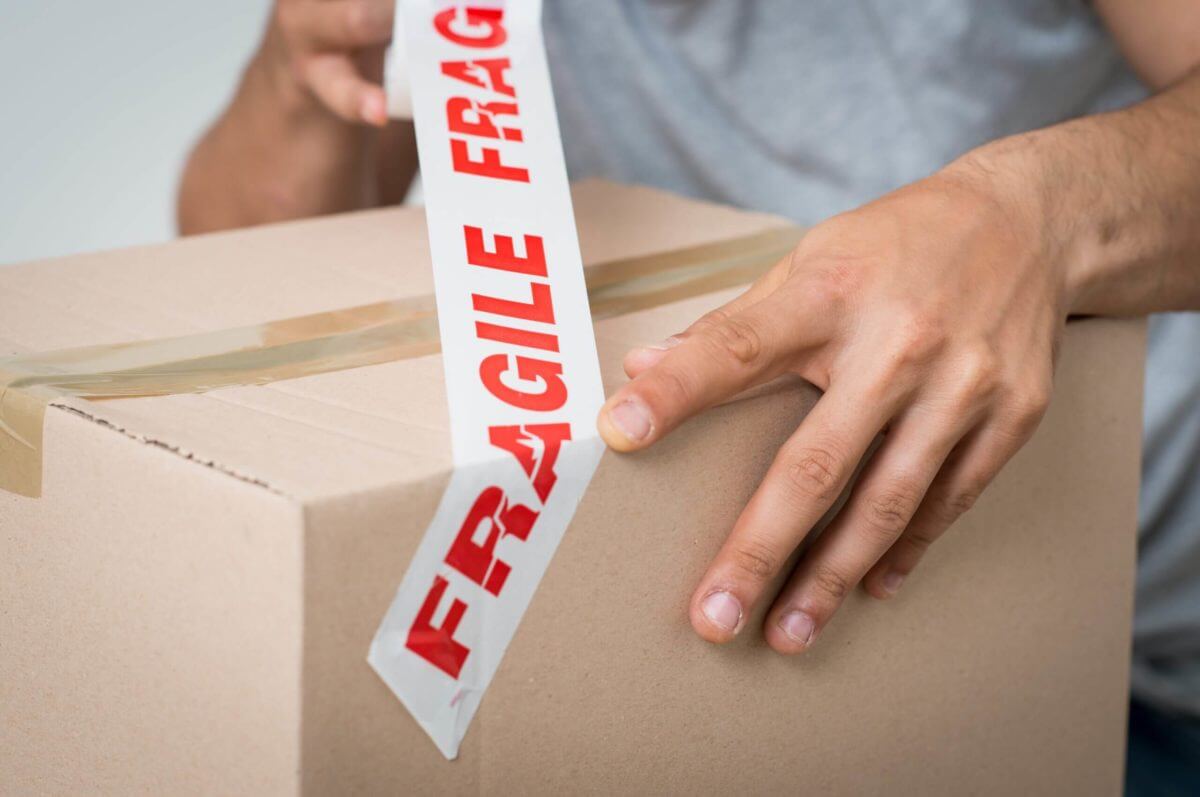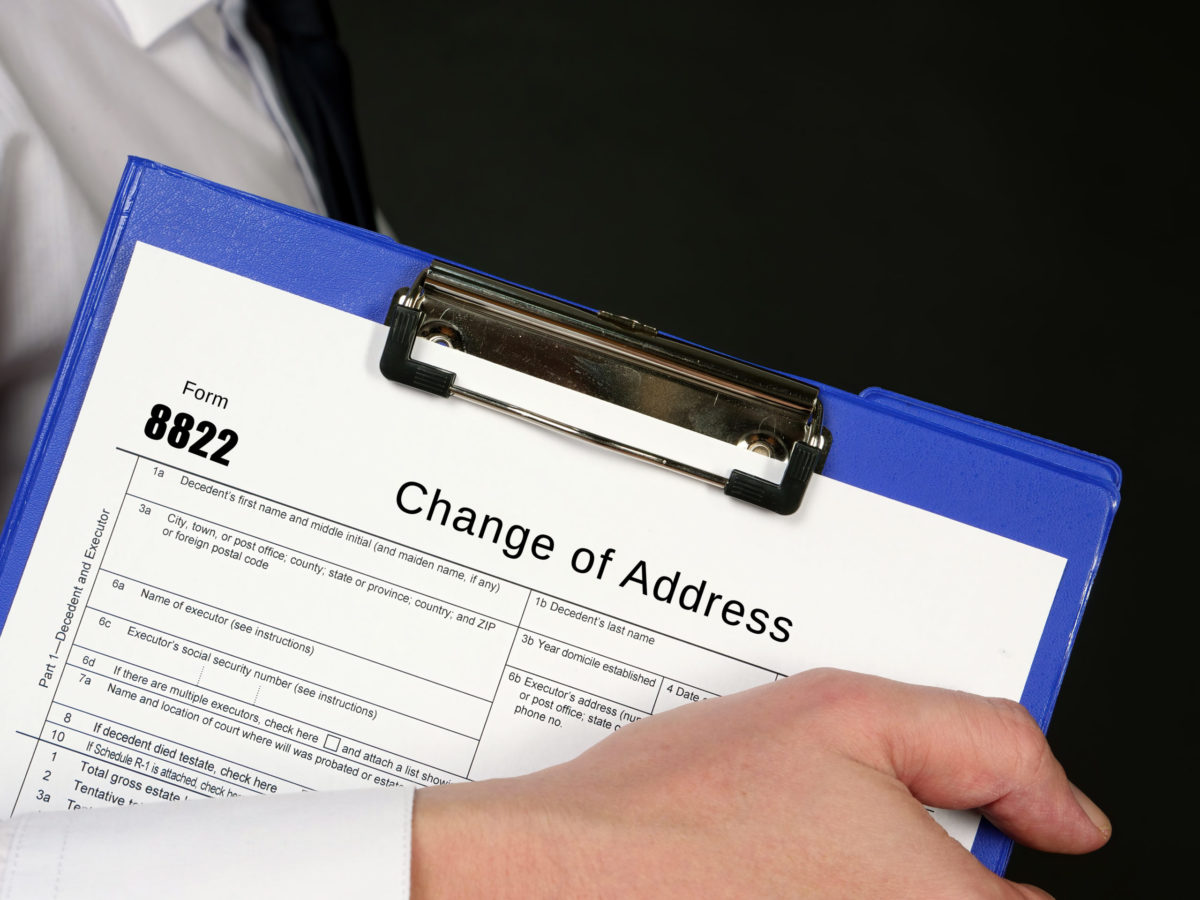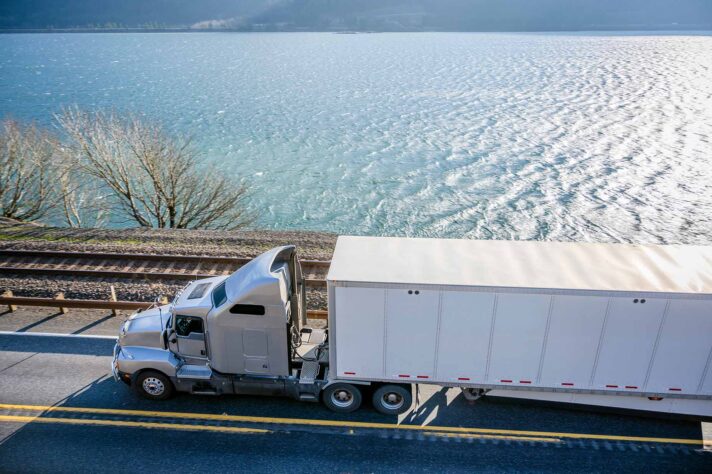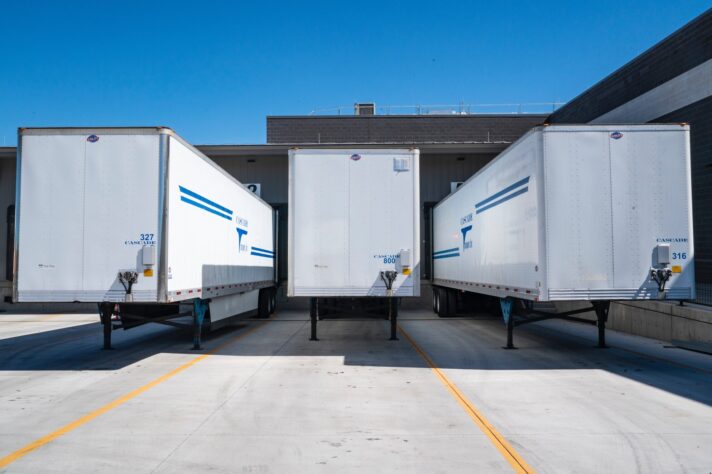If you’re wondering how to move to another state, plan 2-3 months ahead, declutter to reduce costs, choose a reliable mover, avoid packing valuables, ensure safe transit with quality materials, update essential documents, adapt quickly by exploring the new environment and establishing routines, and prioritize unpacking after a move and utilities on the first day in the new state.
Moving Out of State – How to Plan, Prepare, and Execute the Move
Embarking on a journey of moving cross country is a significant life event that often comes with a mixture of excitement and anxiety. Whether you’re relocating for a new job opportunity, a change of scenery, or to be closer to loved ones, the process of moving out of state can be challenging. From meticulously planning to efficiently preparing belongings, this guide will provide you with valuable tips to ensure a smooth transition to your new home.


Setting the Stage – Essential Early Planning for the Move
Before you dive headfirst into the logistics of moving to another state, it’s crucial to set the stage by undertaking some essential early planning steps. This preparatory phase can significantly impact the success and smoothness of the relocation. Here’s a closer look at what you should consider if you’re wondering how to move out of state successfully.
Researching a New State
When you’re relocating to a new state, it’s not just about changing the address – it’s about embracing an entirely different way of life. Start by thoroughly researching the destination state. Learn about critical factors such as the cost of living, the different climate, the job market, and lifestyle. Knowing all these aspects will help you make informed decisions about where to settle and what to expect.
Also, be mindful of the affordability of housing, the availability of job opportunities in your field, and whether you’re prepared for the weather conditions. Additionally, delve into the local culture, recreational activities, and amenities available in the community you’re coming to. This research will not only help you mentally prepare for the relocation but also aid in narrowing down potential areas to call home.
Creating a Timeline and Checklist for the Move
One of the most effective ways to stay organized during a state-to-state relocation is by creating a well-structured timeline and interstate moving checklist. Establish a clear schedule that outlines the critical milestones leading up to the day of the relocation. Begin by setting the move-in date and work backward to allocate specific tasks for each week or month leading up to it. This will ensure that you don’t overlook any important details.
Simultaneously, develop a comprehensive moving out of state checklist that encompasses everything you need to do, from securing the new home and transferring utilities to packing belongings and notifying service providers of the upcoming change of address. Having a timeline and relocation checklist in place will keep you on track and reduce the relocation stress associated with last-minute rushes. It’s a proactive approach that will help you tackle each aspect of the interstate relocation systematically and efficiently.


Budgeting for the Move
Budgeting for an interstate relocation is a crucial step that can significantly impact your financial well-being. To ensure a smooth transition without breaking the bank, you’ll need to carefully plan and manage expenses. Here’s a closer look at how to budget effectively for the upcoming move.
Estimating Relocation Costs
Estimating the out-of-state moving costs is the first step in creating a realistic budget. Relocation expenses will typically encompass several key elements, including transportation, hiring professional cross-country movers, and additional incidentals. Begin by obtaining quotes from several cross-country moving companies, ensuring that they provide detailed breakdowns of their fees and services.
Consider the distance of the move, the size of your household, and any special requirements you may have, such as valuable or fragile items. Additionally, factor in expenses related to packing supplies, insurance coverage, and temporary storage services if necessary. Having a clear overview of these costs will help you set a precise relocation budget and avoid any unpleasant financial surprises down the road.
Tips for Saving and Budgeting Effectively
Relocating can be expensive, but there are ways to save and budget effectively to keep the costs in check. Start by decluttering belongings before the relocation – the fewer items you have to transport, the lower the costs will be. You can also consider relocating during the off-peak season or on weekdays when companies may offer lower rates.
Furthermore, explore the possibility of tax deductions if you’re relocating for a job. It’s essential to be aware of hidden costs, such as additional fees for last-minute changes or unforeseen delays. Budgeting for contingencies and setting aside an emergency fund can provide peace of mind during the process.


Choosing a Reliable Relocation Company
Choosing the right relocation company, such as Cross Country Moving Company, is a critical decision that can significantly influence the success and ease of out-of-state relocation. With numerous options available, it’s essential to know how to find, vet, and evaluate relocation companies to make an informed choice.
How to Find and Vet Out-of-State Relocation Companies
The first step in choosing a reliable long-distance moving company for the upcoming interstate relocation is conducting thorough research. Start by seeking company recommendations from friends, family, or colleagues who have recently experienced a similar relocation. Online reviews and ratings on reputable websites like the Better Business Bureau can also provide valuable insights into the quality of long-distance moving services offered by different companies.
Ensure that any company you consider is licensed and insured, as this guarantees a level of professionalism and accountability. Verify their credentials with the Federal Motor Carrier Safety Administration (FMCSA), which regulates interstate relocation companies. Additionally, reach out to potential long-distance movers and ask them about their experience, services, and policies. This initial vetting process will help you create a shortlist of reputable companies to consider.

Auto Transport
Cross Country Moving Company is the most trusted name in auto industry in the country.
Moving Insurance
Cross Country Moving Company is the most trusted name in the relocation industry in the country.
Packing
Our expert moving teams are trained to ensure the safety of your personal belongings.
Evaluate Quotes and Services to Make the Best Choice
Once you have a list of potential relocation companies, it’s time to evaluate their quotes and cross-country moving services. Request detailed estimates from each company, making sure they provide an itemized breakdown of costs. Be cautious of unusually low quotes, as they may indicate hidden fees or subpar service. Take the time to learn the differences in services offered by various movers.
Some may provide full packing services and unpacking, while others may offer a more basic transportation service. Consider your specific needs and budget when comparing these services. Pay attention to any additional services or fees, such as storage options or specialty item handling. Ultimately, the goal is to choose a company that not only fits the budget but also aligns with the expectations and requirements for a successful out-of-state relocation.


Use Efficient Packing Strategies
Effective packing for a state-to-state move is essential, and it hinges on two fundamental strategies – organizing and decluttering before packing and employing long-distance relocation tips for efficiency and safety. Begin by systematically organizing belongings, assessing what to keep, donate, sell, or get rid of. This step streamlines the packing process, reducing both effort and costs.
Then, equip yourself with high-quality packing materials and start packing room by room, focusing on items you use less frequently. Clearly label each box to simplify unpacking and pay careful attention to weight distribution to prevent overloading, ensuring a smoother and safer transition.
Special Considerations for Fragile and Valuable Items
Certain household items require special attention and care during packing, especially fragile and valuable possessions. Fragile items, such as glassware, porcelain, or electronics, should be wrapped individually using protective materials like bubble wrap or foam. Use sturdy boxes with ample cushioning to prevent breakage, and clearly label these boxes as “fragile” to ensure they receive gentle handling.
Valuable items like jewelry, important documents, and family heirlooms should be packed separately and kept with you during the relocation for added security. You may use a secure lockbox or container to safeguard these items. It’s also advisable to take photographs and create a detailed inventory of all valuable possessions for insurance purposes. These special considerations will help ensure the safety and protection of fragile and valuable items throughout the interstate journey.


Managing Logistics of the Relocation
Effectively managing the logistics of out-of-state relocation is crucial for a seamless transition. There are two pivotal aspects of managing logistics – planning the travel to the new state and coordinating the intricate details of moving day.
A traveling plan involves factors such as the distance you’ll need to travel, the mode of transportation you’ll use, and the route you’ll take. If you’re driving, map out the journey, identify rest stops, and make accommodation arrangements if needed. If you’re flying, book tickets well in advance and plan for airport transportation upon arrival.
Ensure that you have all necessary travel documents, such as IDs, passports, and any paperwork related to the new residence. Coordinating moving day logistics, including loading, transportation, and arrival times, is essential for a smooth transition. Create a detailed schedule that outlines the necessary preparations for moving day to ensure everything goes smoothly.
Necessary Preparations for Moving Day to Ensure Everything Goes Smoothly
To ensure a seamless relocation day, meticulous preparations are essential, so here are some tips for moving out of state. Start by confirming the schedule and logistics with the chosen relocation company, if applicable. Ensure that you’ve packed and labeled all belongings systematically, with essential items and documents kept separately for easy access. Disassemble furniture pieces and appliances as needed, and have all necessary tools and equipment ready for reassembly.
Coordinate with the relocation team or helpers to ensure everyone knows their roles and responsibilities. Additionally, have a plan in place for the care of children and pets on moving day to minimize disruptions. Finally, double-check that you have all essential documents, keys, and contact information readily available. These thorough preparations will help guarantee a smooth and stress-free moving day, ensuring that everything arrives safely and on schedule.


Legal and Administrative Tasks
Navigating the legal and administrative aspects of an out-of-state relocation is pivotal for a smooth transition. There’s one critical facet – updating essential documents. Take the time to update documents like the driver’s license, vehicle registration, and insurance policies to reflect the new state of residence. These crucial updates ensure not only compliance with legal requirements but also provide peace of mind as you settle into the new home, knowing that official records accurately reflect the current situation.
Address Changes and Mail Forwarding
Address changes and mail forwarding are fundamental tasks when relocating out of state. Start by promptly notifying relevant entities of the change of address – bank, credit card companies, and any subscriptions or memberships you hold. Ensure that the driver’s license and vehicle registration reflect the new address, and set up mail forwarding with the US Postal Service to redirect your mail during the transition.
Simultaneously, it’s essential to manage the transfer of utilities and the setup of services at your new home efficiently. Contact current utility providers to disconnect services at the old address and establish them at the new one, covering essentials like electricity, water, gas, and internet. Timely attention to these administrative tasks is key to a seamless relocation and helps you settle comfortably with minimal disruption.


Settling Into the New State
The process of settling in involves more than just physically transporting belongings – it’s about making a place for yourself in a new environment. Begin by unpacking and organizing the new home, creating a comfortable and familiar space. To ease the transition and adapting to a new community, explore surroundings, meet neighbors, and engage in local activities and events.
Establishing a new routine is essential – it helps you adapt to the rhythm of the new life and find a sense of stability. Seek out local resources such as schools, healthcare providers, and recreational facilities to build a support network and fully embrace the new state as a home.


From Boxes to Community – Navigating the Transition to the New State
In conclusion, the journey of relocating out of state is a multifaceted experience that encompasses careful planning, meticulous organization, and thoughtful adaptation. From the initial stages of preparing for the move to the legal and administrative tasks required for a seamless transition, each aspect plays a pivotal role in ensuring success.
By approaching your out-of-state move with diligence and adaptability, you can turn this significant life event into an opportunity for growth, exploration, and a new chapter in your life journey.
If you want a seamless relocation experience, contact Cross Country Moving Company and allow us to take care of every aspect of your cross-country endeavor.
How Far in Advance Should I Start Planning My Out-Of-State Move?
Start planning the out-of-state relocation at least 2-3 months in advance to ensure ample time for preparations.
What Are the Best Ways to Reduce Relocation Costs?
To reduce costs, declutter and sell or donate items you don’t need, choose an off-peak relocation date, compare quotes from multiple movers, and consider doing it yourself.
What Items Should I Not Pack When Relocating Out of State?
Do not pack hazardous materials, perishable goods, valuable or irreplaceable items, or personal documents like passports and IDs.
How Can I Make Sure My Belongings Are Safe During Transit?
Ensure your belongings are safe during transit by using high-quality packing materials, proper padding for fragile items, and hiring reputable movers with good insurance coverage.
For long-distance moves, use sturdy boxes, bubble wrap, packing paper, packing tape, and furniture covers to ensure your belongings stay secure during transit.
What Are the Essential Documents I Need to Update When Moving Out of State?
Update the driver’s license, vehicle registration, and insurance policies, and begin address change procedures with the US Postal Service, financial institutions, and important subscriptions.
How Can I Quickly Adapt to My New Environment After Moving?
To adapt quickly, explore surroundings, engage in local activities, meet neighbors, and establish a new routine.
What Should I Do on the First Day in My New State?
On the first day after relocating to a new state, prioritize unpacking essentials, connecting utilities, and familiarizing yourself with the neighborhood, including locating essential services and resources.
How Do I Handle Utility Transfers for an Out-Of-State Move?
Handle utility transfers by scheduling disconnections at the old address and setting up services at the new home well in advance, ensuring a seamless transition.






